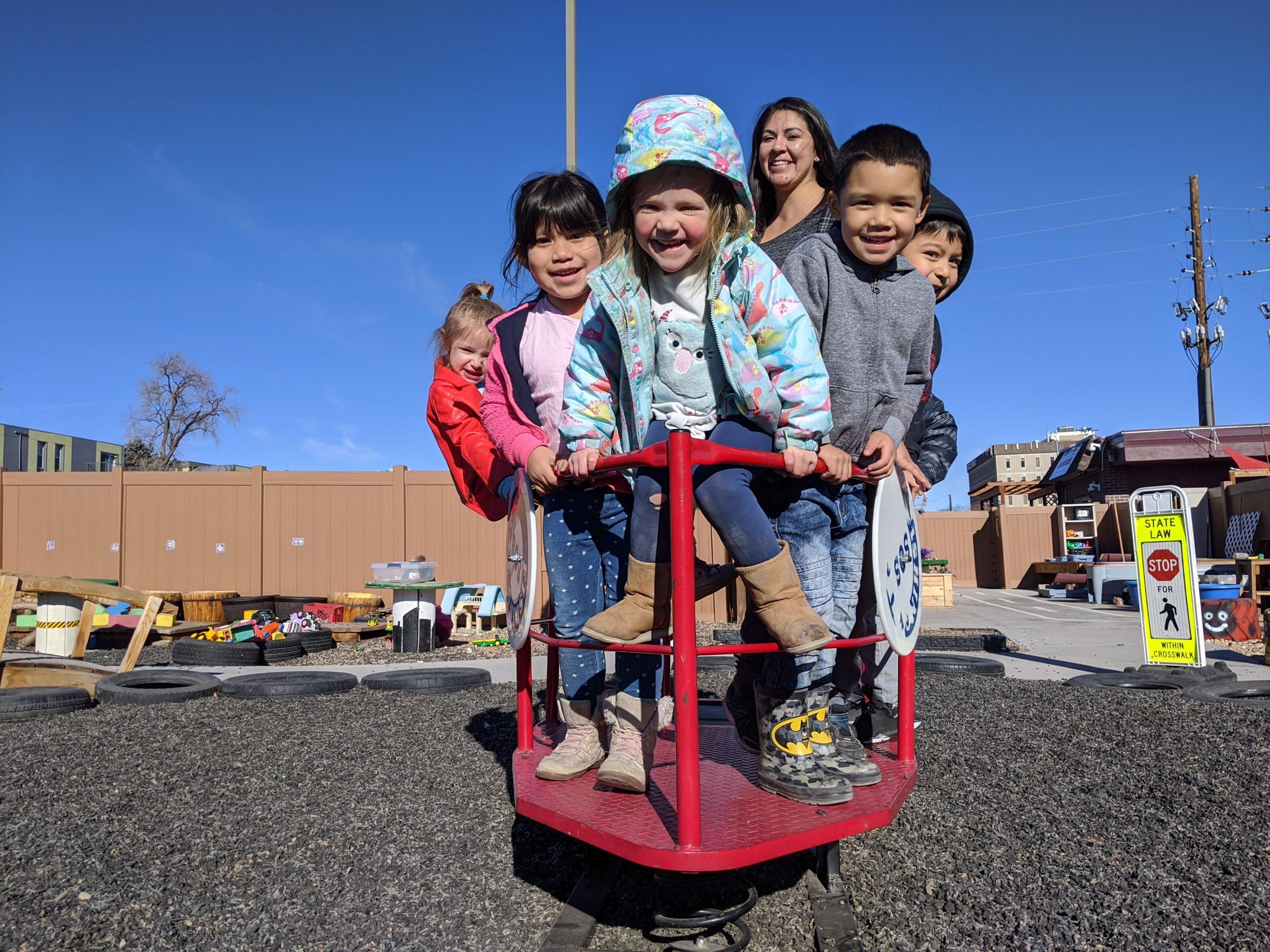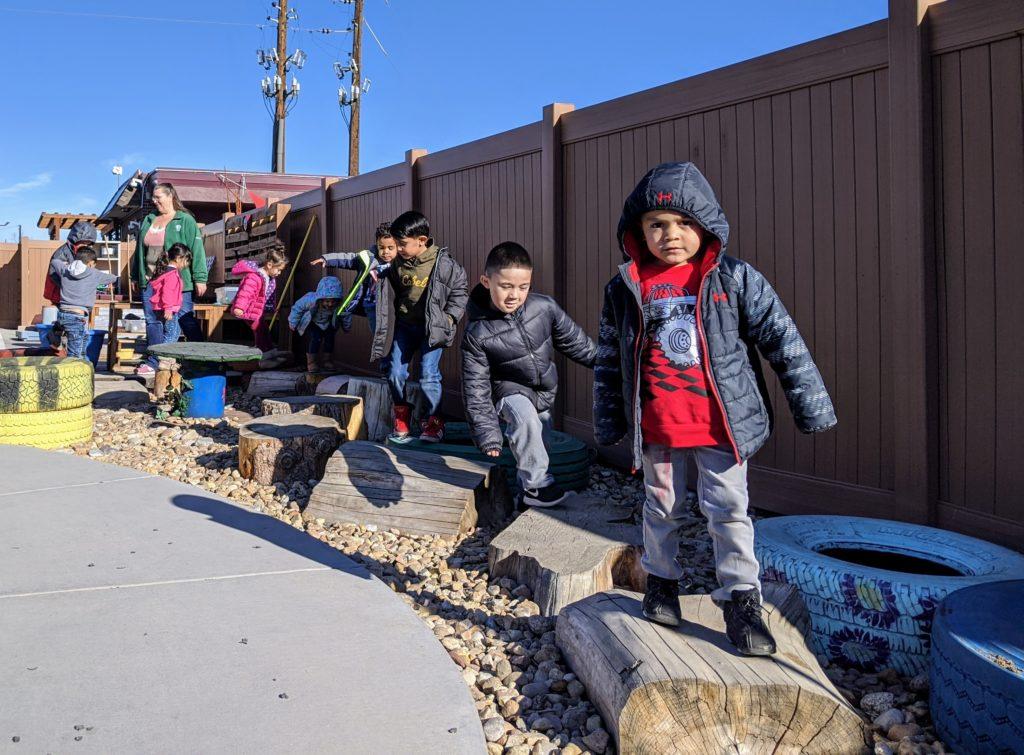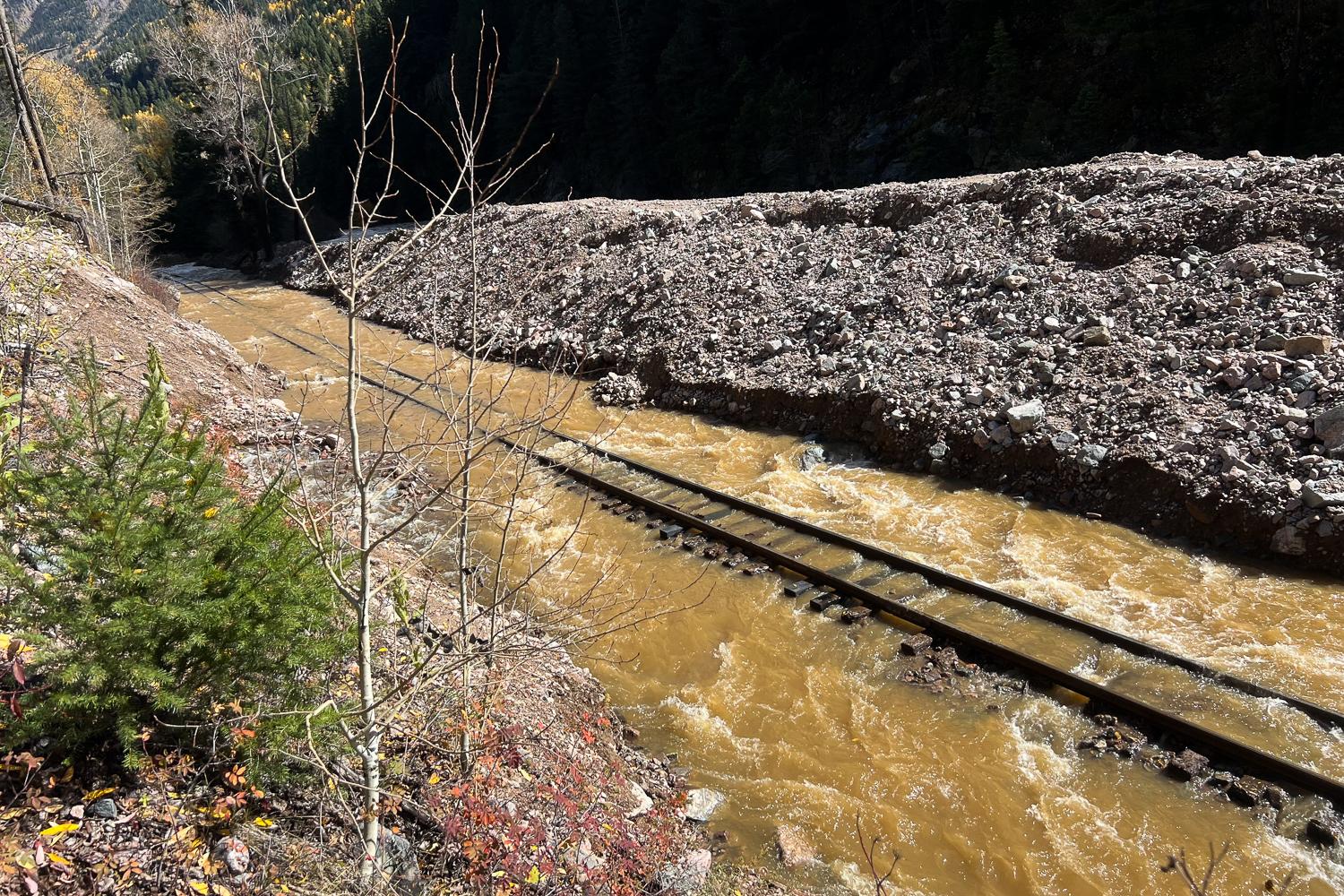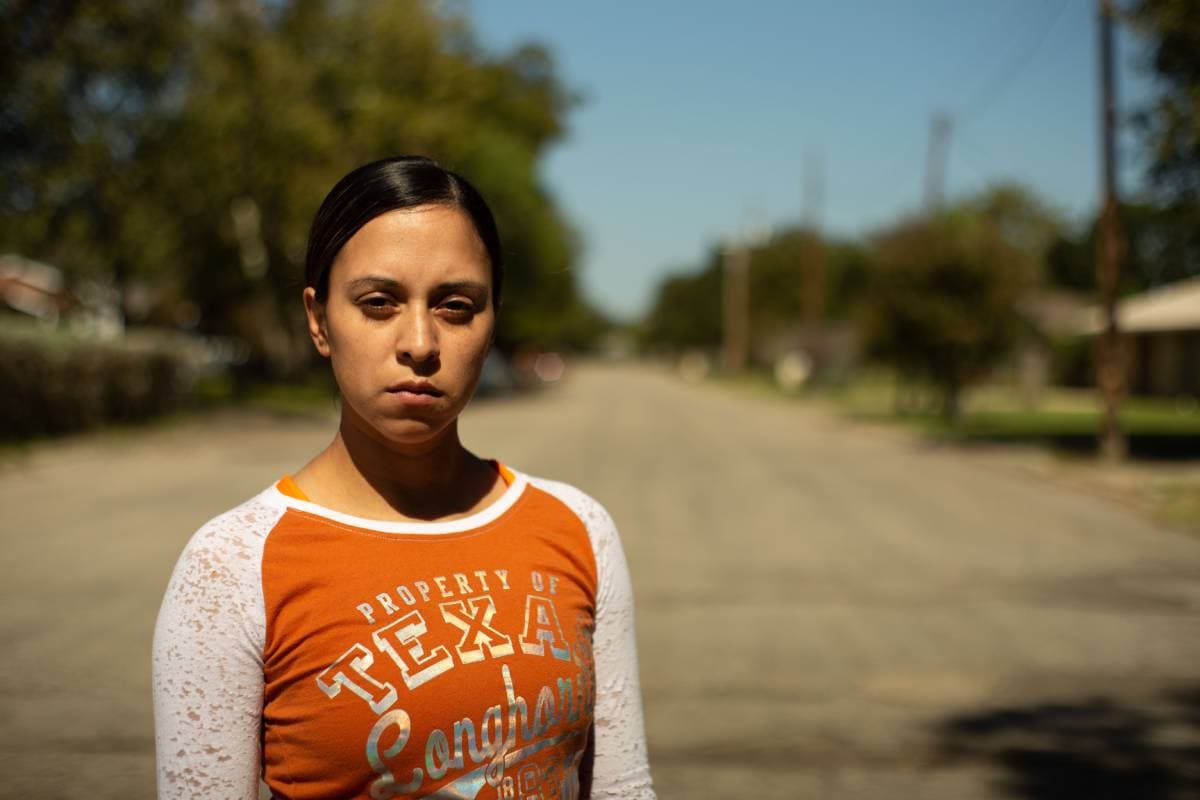
For four-year-old Carlos Craine, playtime at Step By Step Child Development in Northglenn is a roller coaster of his own imagination.
He and his friends began a recent morning recess by building a boat out logs and foam blocks. He took the helm just as the structure collapsed, but the crew quickly moved on. They shifted to baking “cupcakes” from sand and gravel.
After that got boring, they hopped across a trail of stumps and boulders to a garage filled with tricycles. Carlos grabbed one and whipped around a concrete track until playtime ended.
Michelle Dalbotten, owner and manager at Step By Step, said their playground wasn’t always so entertaining. Two years ago, it was just a pit of rubber mulch with a pair of plastic jungle gyms.
“That gets very cramped,” Dalbotten said. “So lots of pushing, hitting, kicking, throwing — just not very nice interactions”
The improvements at Step By Step wouldn’t have happened without the Early Childhood Health Outdoors initiative. The ECHO program is a joint venture of the National Wildlife Federation and the Natural Learning Initiative at North Carolina State University.
In 2017, the Denver-based program chose Step By Step as a demonstration site. The selection came with free playground designs and a $10,000 grant to kickstart construction.

The program has built playgrounds across Colorado with an emphasis on stumps and boulders instead of slides and swings. By bringing the outdoors closer to children, the hope is to make playing in nature easier for time-crunched families.
“Ultimately, it’s about having experiences where outcomes aren’t dictated by adults,” said Sarah Konradi, a landscape architect and the director of the ECHO initiative. “We definitely don’t say everything has to be a stick or a rock. I think what those materials do is get us back to basics.”
At Step By Step, Dalbotten said the new play area has given some kids their first experiences with the natural world. The poverty rate in Northglenn sits just above the state average. According to Dalbotten, her business reflects the community, drawing families ranging from high income to homelessness. Many of the kids haven’t “touched a park.”
“They don’t go fishing. They don’t throw rocks. They don’t garden with grandma. They haven’t done that.”
The new play area sits atop an asphalt parking lot, but the addition of gardens has drawn in some wildlife. The arrivals are always an event.
“We got some praying mantis, we’ve got some butterflies, we’ve got some squirrels, we’ve got bunnies,” she said. “Even though those aren’t huge, for our kids, it was big.”
The designers at ECHO see their work as a potential antidote for endless school, sports and screen time. If those activities fill up kids’ schedules, Konradi worries they might not miss the cognitive benefits of unstructured, outdoor play.
According to researchers, playing outside can help kids concentrate, gain confidence and interact with adults. One study even suggests it improves eyesight.
In the past, Konradi thinks playgrounds designers put far too much emphasis on safety. For children to learn how to climb a rock or balance on a stump, their experience needs to present a small bit of risk.
“Risky in a good way,” said Konradi. “Risky in a way that pushes kids to explore and test skills.”
That’s why Konradi doesn’t see splinters or scrapes as design flaws. For her team, they’re “learning injuries.”
The ECHO initiative has helped spread that philosophy to playgrounds across Colorado. In 2016, the program received a $1.75 million grant from the Colorado Health Foundation. Since then, it has provided seed funding to about 280 state sites, including nine “demonstration sites” like the playground at Step-by-Step. Recently, the Telluray Foundation provided the program with an additional $250,000 grant.
Konradi hopes the new funding will continue to make play areas in Colorado a little more like the rest of the world: messy, unpredictable and just a little unsafe.









